Africa Cup of Nations – FINAL
Ivory Coast v Zambia
(Midday)
 Ranked 16 in the CAF standings, in footballing terms Zambia’s progression to the Final today is a remarkable achievement. Their two most noteworthy results in the tournament to date include the group win over highly fancied Senegal and the Semi-Final win over pre-tournament favourites Ghana. Others will say though this journey is all about fate and that The Copper Bullets are destined to win the trophy. The reason? Back in April 1993 the Zambian team were flying to a World Cup Qualifying game in Senegal. After a fuel stop in Libreville, the plane took off, but crashed soon after, just off the Gabon coast. All passengers and crew were killed and included 18 players. So for the modern-day Zambian squad that crash and loss of their compatriots has been there in the background – a part of their drive, an unconscious positive force – and maybe, just maybe it will take them to one more incredible victory.
Ranked 16 in the CAF standings, in footballing terms Zambia’s progression to the Final today is a remarkable achievement. Their two most noteworthy results in the tournament to date include the group win over highly fancied Senegal and the Semi-Final win over pre-tournament favourites Ghana. Others will say though this journey is all about fate and that The Copper Bullets are destined to win the trophy. The reason? Back in April 1993 the Zambian team were flying to a World Cup Qualifying game in Senegal. After a fuel stop in Libreville, the plane took off, but crashed soon after, just off the Gabon coast. All passengers and crew were killed and included 18 players. So for the modern-day Zambian squad that crash and loss of their compatriots has been there in the background – a part of their drive, an unconscious positive force – and maybe, just maybe it will take them to one more incredible victory.
Ivory Coast have yet to concede so far in the competition and another statistic of note is that none of the previous thirty one games have produced a 0-0. Could The Elephants lose the tournement on penalties having not lost a game or conceded a goal? Does the competition have one last twist? Football logic says that the footballing stars of the Ivory Coast will take the title, but is it written in the celestial stars that Zambia will be crowned champions?
(11.30pm)
Sometimes you get an image that says so much. As the captains exchanged pennants before kick-off, the camera drew back and revealed Ivory Coast captain Didier Drogba standing by Zambian skipper, Christopher Katongo. Drogba physically dwarfed the opposing captain – an obvious visual ‘David and Goliath’ – a representation of The Elephants, a side full of stars, the favourites, against The Copper Bullets, the unfancied minnows.
Pleasantries over, Ivory Coast kicked-off in drizzly conditions and within a minute Zambia showed that they were not here to make up the numbers as they forced a corner. It was well worked and Nathan Sinkala fired in an excellent shot that was not only saved but held by Boubacar Barry the Ivory Coast keeper. Almost immediately the action switched to the other end where Zambian defender Joseph Musonda makes an important interception. However, the defender is in pain as replays shows his ankle twist and fold beneath him on the greasy surface. He goes off for treatment but does return, however it is evident he is in pain, and in tears departs the game after only 11 minutes. Drogba sportingly consoles the Zambian, but Musonda is understandably distraught. Mulenga comes on as substitute and so grabs his chance of glory. It does not seem to effect Zambia and on 13 minutes from a long throw, Chisamba Lungu crosses and Emmanuel Mayuka heads over on onto the roof of the net. The first fifteen minutes have belonged to Zambia, but Ivory Coast then started to get into the game as in quick succession runs by Drogba at the Zambia defence result in free-kicks within shooting range. The first is high and wide, the second a comfortable catch for Kennedy Mweene in the Zambian goal. Just past the twenty minute mark, Zambia have a free-kick, but it only results in a corner. The Elephants then press and win two corners in quick succession, with the second causing panic in the box and is eventually scrambled clear. Despite this flurry of activity, it is thirty minutes into the games before Ivory Coast create a genuine chance on goal, when from a Drogba back-heel, Yaya Toure shots wastefully wide. As the game enter the final ten minutes of the half, it loses momentum as there are breaks for injuries and it all becomes rather scrappy. After two minutes of time added-on the whistle is blown and despite the 0-0 score-line, Zambia go into the break the happier of the two teams.
Ivory Coast start the second period more positively with Gervinho getting out wide and attacking the Zambian defence. The Elephants dominate the opening ten minutes without actually creating a decent chance. However, Zambia nearly catch out the Ivory Coast as they have consecutive corners which rattle The Elephants defence. With twenty minutes to go Ivory Coast bring on Max Gradel to reinforce the threat to the Zambian defence down the flanks. Salomon Kalou departs and looked less than impressed as he left the field. The double threat of Gervinho and Gradel pays dividends, when on 70 minutes, Gervinho is bundled over in the box by Isaac Chansa – a pretty soft penalty really. Drogba takes the spot-kick and ballons it over the bar. The Chelsea man points accusingly at the turf, whilst Zambian keeper Kennedy Mweene celebrates mockingly in front of The Elephants skipper. Once more the question looms, are Zambia fated to win this trophy? The game enters a scrappy phase again and without realising it, extra-time is a real possibility. However, with a minute to go, Gradel is in the Zambian box and creates a chance for himself, with defender and keeper wrong-footed, he drags his shot just wide. Four minutes of added-time ebbs and flows and in the Final game of the tournament we have our first 0-0.
As with the start of the game, Zambia nearly take the lead in the first period of extra-time. Skipper Christopher Katongo gets down the by-line and cuts back for brother Felix. His shot looks to be going in, but Boubacar Barry in the Ivorian goal sticks out a leg and manages to deflect the ball onto the post. Replays show that the vital deflection is off the keepers studs! That turns out to be the only real goal attempt and suddenly the game is underway again for the final fifteen minutes. Ivory Coast look the more dangerous in the second period, but there is now an inevitability about the onset of penalties.
This morning I dared to venture whether The Elephants would end up losing the competition having not conceded a goal. I didn’t honestly believe that would happen, but here I was watching from afar with that outcome a real possibility. At this point, I have to say that I wanted Zambia to complete this incredible victory by winning the shoot-out. Ivory Coast went first and Tiote, Christopher Katongo, Bony, Mayuka all scored as penalties reached 2-2. Bamba then had his penalty saved by Mweene, but it had to be retaken as the keeper was adjudged to have moved too early. Bamba slammed in his second attempt and Chansa, Gradel and Felix Katongo all scored to tie it up at 4-4. Drogba was then up next for Ivory Coast, but despite the pressure of his earlier miss, there was no error this time and he gave The Elephants a 5-4 lead. The spotlight then feel on Zambian keeper who took the fifth penalty for The Copper Bullets. Calmly he scored and the two keepers (both who had played so well in the Final) shared a ‘Keepers Union’ moment, before sudden death penalties began. Tiene, Sinkala, Didier Ya Konan and Chisamba Lungu all slot home to bring the score to 7-7. Kolo Toure was next up and had a run-up that seemed to begin at the half-way line. His penalty was a week effort and Mweene comfortably saved. Zambia had the chance to win it as Rainford Kalaba stepped-up. However, he blasted way over and the chance was gone. Gervinho had the chance to put The Elephants back in front, but he shot high and wide and once again, The Copper Bullets had the chance to clinch the trophy. Stoppila Sunzu became the hero and ensured that Zambia fulfilled their destiny. Many banners in the crowd acclaimed the victory as being for the victims of the ’93 air-crash and the Zambian players formed a circle to offer a prayer at their memory and their victory, another image which said so much. Zambia coach Herve Renard carried down the injured Musonda to join his colleagues and all that was left was the presentation of the cup, once it had been delivered by tribal dancers.
Third time lucky for Zambia. They will tell you it wasn’t about luck, but their destiny.
2012 Africa Cup of Nations – Final
Ivory Coast (0) 0 – 0 (0) Zambia [AET]
Zambia won 8-7 on penalties
Stade d’Angondjé, Libreville
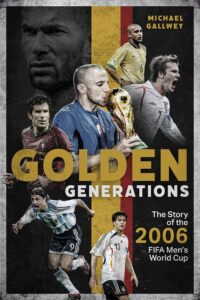 Golden Generations: The Story of the 2006 FIFA Men’s World Cup tells the tale of one of the most action-packed international tournaments in recent memory.
Golden Generations: The Story of the 2006 FIFA Men’s World Cup tells the tale of one of the most action-packed international tournaments in recent memory.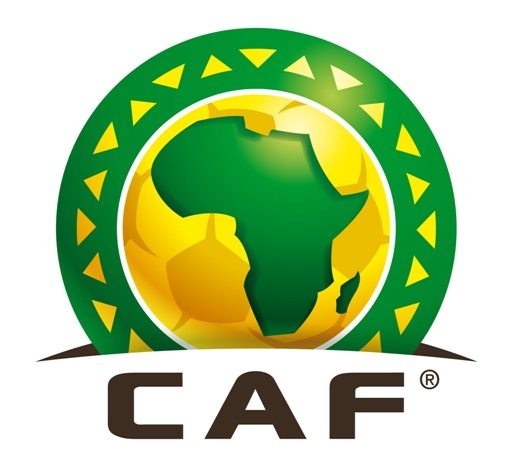 Group D:
Group D: Ranked 16 in the CAF standings, in footballing terms Zambia’s progression to the Final today is a remarkable achievement. Their two most noteworthy results in the tournament to date include the group win over highly fancied Senegal and the Semi-Final win over pre-tournament favourites Ghana. Others will say though this journey is all about fate and that The Copper Bullets are destined to win the trophy. The reason? Back in April 1993 the Zambian team were flying to a World Cup Qualifying game in Senegal. After a fuel stop in Libreville, the plane took off, but crashed soon after, just off the Gabon coast. All passengers and crew were killed and included 18 players. So for the modern-day Zambian squad that crash and loss of their compatriots has been there in the background – a part of their drive, an unconscious positive force – and maybe, just maybe it will take them to one more incredible victory.
Ranked 16 in the CAF standings, in footballing terms Zambia’s progression to the Final today is a remarkable achievement. Their two most noteworthy results in the tournament to date include the group win over highly fancied Senegal and the Semi-Final win over pre-tournament favourites Ghana. Others will say though this journey is all about fate and that The Copper Bullets are destined to win the trophy. The reason? Back in April 1993 the Zambian team were flying to a World Cup Qualifying game in Senegal. After a fuel stop in Libreville, the plane took off, but crashed soon after, just off the Gabon coast. All passengers and crew were killed and included 18 players. So for the modern-day Zambian squad that crash and loss of their compatriots has been there in the background – a part of their drive, an unconscious positive force – and maybe, just maybe it will take them to one more incredible victory.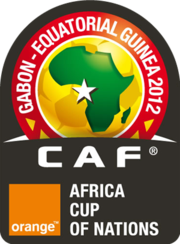 Slowly but surely the end of the 2012 Orange Africa Cup of Nations is coming into view. Tomorrow the last four teams take part in the two Semi-Final fixtures. Depending on the result it will lead either to an appearance in a Final and perhaps the opportunity of a career defining moment or having to take part in a game that no one wants to play in – the dreaded 3rd/4th Place Play-Off.
Slowly but surely the end of the 2012 Orange Africa Cup of Nations is coming into view. Tomorrow the last four teams take part in the two Semi-Final fixtures. Depending on the result it will lead either to an appearance in a Final and perhaps the opportunity of a career defining moment or having to take part in a game that no one wants to play in – the dreaded 3rd/4th Place Play-Off.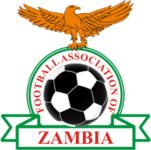 In the opening game of the evening at the Estadio de Bata, Zambia met Sudan. Zambia dominated from the off and were 1-0 up within the opening fifteen minutes. Kalaba swung in a Zambian free-kick from the wing and as the Sudanese defence stopped, Sunzu (sporting a rather fine mohican) headed in. Now depending whether you are part of the goalkeeping union or not, you would either say that Sudan custodian Akram was left badly exposed by his defence and had no chance with the header, or his challenge at punching away the incoming ball into the box was too little too late. Whatever you point of view, it added more fuel to the fire in the debate about the standards of goalkeeping in this competition. Sudan struggled to get into the first-half and any chance of establishing any rhythm was hindered by two enforced substitutions due to injury as Yousif Ela Eldin and Hamid Nazar were replaced. Overall, Zambia deserved their half-time lead. Sudan however dominated the opening twenty minutes of the second half with good chances created for Eltaib and Ahmed Khalifa. They were still in the match on 66 minutes, but then threw the game away. Kalaba broke into the Sudan penalty area and was being forced wide, when inexplicably, cynically and crudely, Saif Eldin Ali Idris hacked the Zambian down. A penalty was awarded and Sudan were down to ten men. Akram did well to save the spot-kick, but the rebound fell kindly to skipper Christopher Katongo who swept it in and put the game out of reach of Sudan. The result was put beyond doubt on 86 minutes, as James Chamanga curled in a beauty to make it 3-0. Undoubtedly, the turning point was the sending off and penalty, as it was still only 1-0 with about 25 minutes still to play. However, Zambia were the better team and are emerging as a dark horse in the tournament.
In the opening game of the evening at the Estadio de Bata, Zambia met Sudan. Zambia dominated from the off and were 1-0 up within the opening fifteen minutes. Kalaba swung in a Zambian free-kick from the wing and as the Sudanese defence stopped, Sunzu (sporting a rather fine mohican) headed in. Now depending whether you are part of the goalkeeping union or not, you would either say that Sudan custodian Akram was left badly exposed by his defence and had no chance with the header, or his challenge at punching away the incoming ball into the box was too little too late. Whatever you point of view, it added more fuel to the fire in the debate about the standards of goalkeeping in this competition. Sudan struggled to get into the first-half and any chance of establishing any rhythm was hindered by two enforced substitutions due to injury as Yousif Ela Eldin and Hamid Nazar were replaced. Overall, Zambia deserved their half-time lead. Sudan however dominated the opening twenty minutes of the second half with good chances created for Eltaib and Ahmed Khalifa. They were still in the match on 66 minutes, but then threw the game away. Kalaba broke into the Sudan penalty area and was being forced wide, when inexplicably, cynically and crudely, Saif Eldin Ali Idris hacked the Zambian down. A penalty was awarded and Sudan were down to ten men. Akram did well to save the spot-kick, but the rebound fell kindly to skipper Christopher Katongo who swept it in and put the game out of reach of Sudan. The result was put beyond doubt on 86 minutes, as James Chamanga curled in a beauty to make it 3-0. Undoubtedly, the turning point was the sending off and penalty, as it was still only 1-0 with about 25 minutes still to play. However, Zambia were the better team and are emerging as a dark horse in the tournament.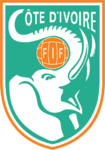 In the second game of the night the first-half was very much about The Elephants captain Didier Drogba. After thirty minutes (in which Ivory Coast had dominated), a penalty was awarded after Didier Zokora was fouled. Drogba stepped up, but his effort was well saved by Emmanuel-Danilo. However, within six minutes Drogba redeemed himself. Rui Fernando Gomez make a hash of controlling the ball, Drogba pounced, drove into the box and after cutting inside two defenders squeezed a shot past Danilo; 1-0 and Ivory Coast had their half-time lead. As in their previous fixtures, The Elephants seemed content to absorb the pressure in the opening of the second-half and play on the counter. The killer blow came with twenty minutes remaining. Yaya Toure fired in a free-kick and Drogba placed a bullet header into the net for his and The Elephants second. If that finish wasn’t impressive enough, then with just ten minutes to go, Yaya Toure scored with an absolutely stunning curling free-kick and clinch a 3-0 win. The Elephants through and yet to concede a goal – ominous for the other teams. Equatorial Guinea did their country proud and they will no doubt rise up the CAF and FIFA rankings after this showing.
In the second game of the night the first-half was very much about The Elephants captain Didier Drogba. After thirty minutes (in which Ivory Coast had dominated), a penalty was awarded after Didier Zokora was fouled. Drogba stepped up, but his effort was well saved by Emmanuel-Danilo. However, within six minutes Drogba redeemed himself. Rui Fernando Gomez make a hash of controlling the ball, Drogba pounced, drove into the box and after cutting inside two defenders squeezed a shot past Danilo; 1-0 and Ivory Coast had their half-time lead. As in their previous fixtures, The Elephants seemed content to absorb the pressure in the opening of the second-half and play on the counter. The killer blow came with twenty minutes remaining. Yaya Toure fired in a free-kick and Drogba placed a bullet header into the net for his and The Elephants second. If that finish wasn’t impressive enough, then with just ten minutes to go, Yaya Toure scored with an absolutely stunning curling free-kick and clinch a 3-0 win. The Elephants through and yet to concede a goal – ominous for the other teams. Equatorial Guinea did their country proud and they will no doubt rise up the CAF and FIFA rankings after this showing.